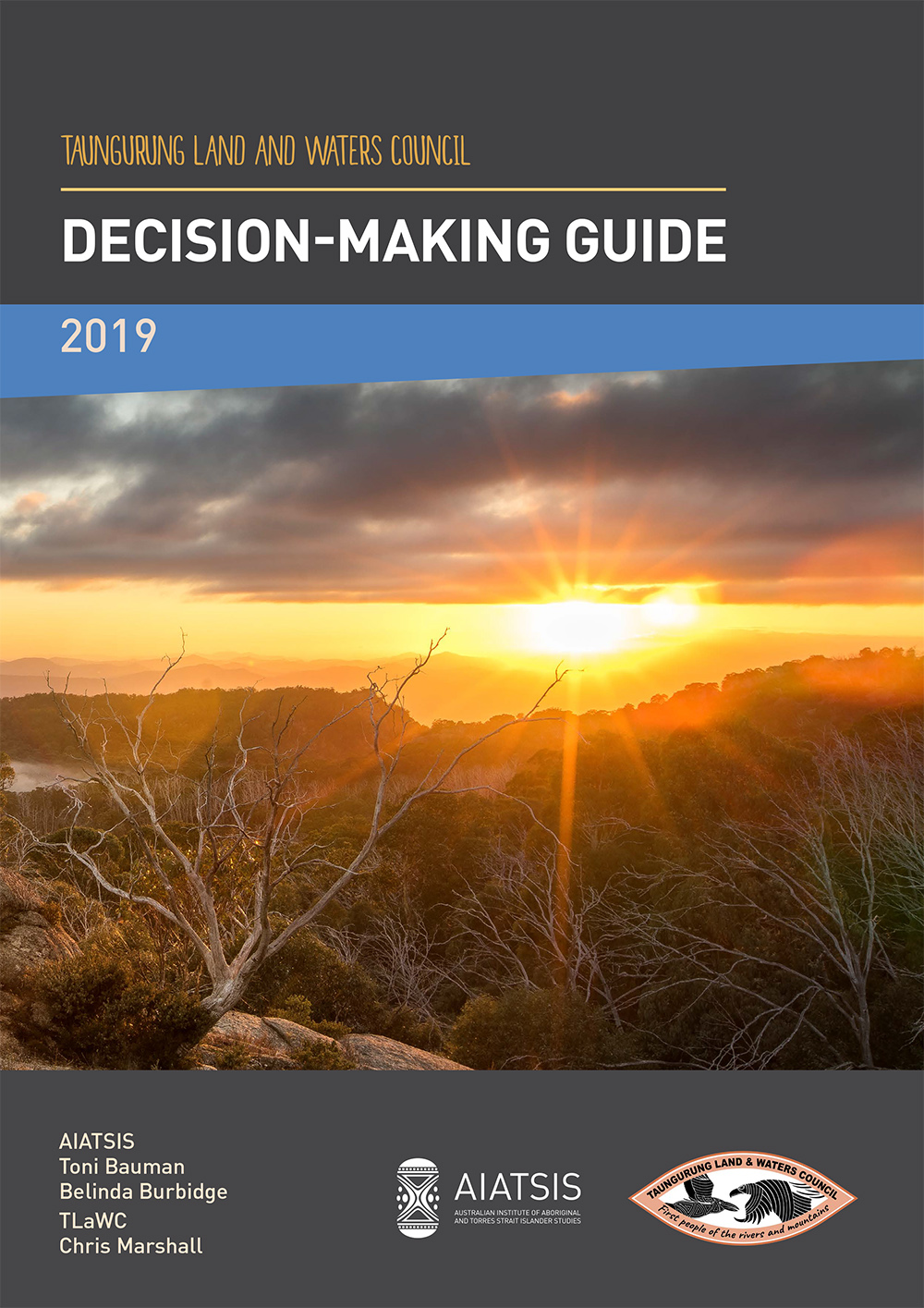Managing decision-making and dispute-resolution is an important part of managing native title rights and interests. As part of their native title determination, native title holders form a Registered Native Title Bodies Corporate (RNTBCs) – a corporation to hold the native title rights and interests in trust or agency of the broader native title holding group. The board, staff and members of the RNTBC occupy a difficult space – legally complex – with a broad range of decision-making rights, roles and responsibilities.
In 2017 Right People for Country (RPfC) Victoria invited AIATSIS to partner with Taungurung Clans Aboriginal Corporation (TCAC, now Taungurung Land and Waters Council – TLaWC) and Aboriginal Victoria to conduct a case study consisting of a family re-engagement plan, including family meetings and an engagement report, as well as the production of a decision-making resource pack for Taungurung clans.
The research resulted in the Taungurung decision-making guide for their directors and members who are the traditional owners of country in Central Victoria. This tailor-made guide considers decision-making issues and responsibilities under the Traditional Owner Settlement Act 2010 (Vic) and the Corporations (Aboriginal and Torres Strait Islander) Act 2006 (Cth) (CATSI Act).
Taungurung people wanted the guide to be of use to other Indigenous corporations including RNTBCs. In 2021, a revised draft guide was partly trialled with Barengi Gadjin Land Council Aboriginal Corporation RNTBC to begin to tailor the guide to RNTBC decision-making requirements under the Native Title Act 1993 (Cth) (NTA) including recent amendments and the Native Title (Prescribed Bodies Corporate) Regulations 1999 (Cth)
The guide has been the subject to comment from a number of experts and is undergoing additional revisions. Ultimately the guide will also have to account for changes to the CATSI Act once the CATSI Act Amendment Bill is passed.
The guides contain practical information on:
- compliance and legal requirements
- decision-making for directors, board, members and common law native title holders
- separation of powers
- conflicts of interest
- cultural governance
- facilitating meetings
- building agreement and dispute management
In evaluating the Taungurung decision-making guides TLaWC CEO Matt Burns praised them as:
…a resounding success. They are posted on the TLaWC website, available at every TLaWC board meeting and regularly used and referred to in difficult discussions. They are regarded as something of genuine value in guiding corporation decisions and as a product of which TLaWC can be proud.
Effective decision-making is essential to strong governance. It can go a long way to reducing the negative impacts of disputes.
